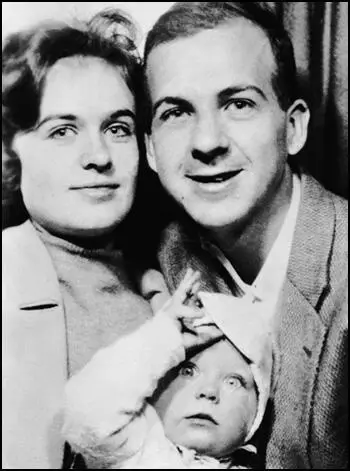On this day on 26th September
On this day in 1087 William Rufus was crowned by Lanfranc, the Archbishop of Canterbury. His father William the Conqueror died on 9th September 1087. He was not a popular ruler. According to the historian Frank Barlow: "Monastic writers, although acknowledging some of William's virtues, looked askance at his morals. By associating him with what they considered effeminate fashions in dress and comportment they hinted at his homosexuality. And since he never married and is not known to have had any bastards this has been generally accepted.... Rufus has also been judged not only irreligious but also atheistical, even heretical. Certainly he shared the soldier's disrespect for Christian morality and the clerical life."
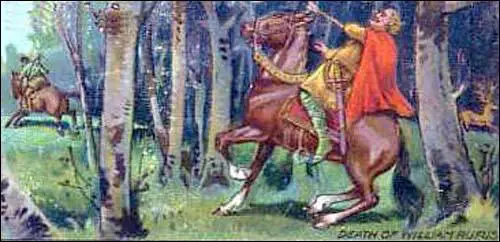
On this day in 1580 Frances Drake completed circumnavigation of the world, sailing into Plymouth aboard the Golden Hind. Drake returned to England as a very wealthy man and he was able to purchase the Buckland Abbey estate. In 1581 Queen Elizabeth knighted Drake and later that year he was elected to the House of Commons.
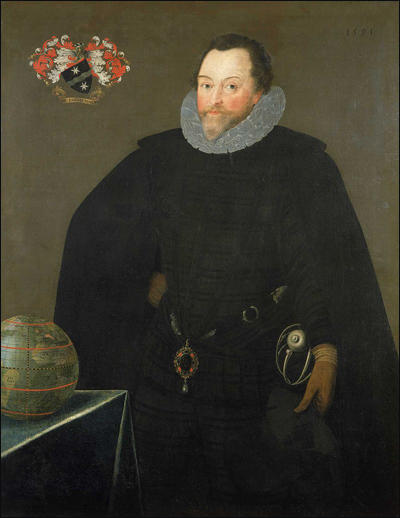
On this day in 1665 the Great Plague was creating serious problems in London. It is estimated that 7,165 people died of the disease in the previous week.
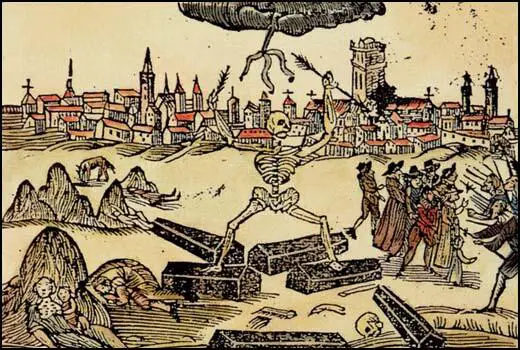
On this day in 1789 President George Washington appointed Thomas Jefferson as his Secretary of State and Alexander Hamilton as Treasury Secretary. In the 1800 presidential election Jefferson defeated John Adams. Jefferson appointed his long-term friend, Meriwether Lewis, as his personal secretary. At this time Jefferson read about the adventures of Alexander Mackenzie. In his book, Voyages from Montreal, Mackenzie had described his two expeditions where he had tried to find a navigable route to the Pacific Ocean. For the next few months Jefferson and Lewis discussed the possibility of exploring these unknown lands.
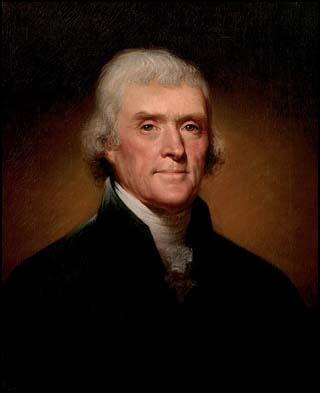
On this day in 1857 Henry Plummer killed John Vedder. Plummer, who had been having an affair with Vedder's wife, was sentenced to 10 years in San Quentin. In May 1863, Plummer was elected sheriff of Bannack . Unknown to the people of Bannack, Plummer was the leader a 100 man gang that were involved in local robberies. The gang wore ties in a special knot to identify fellow members and called themselves as the "Innocents". Crime in the town increased dramatically and in during the first couple of months after he was appointed, more than 100 citizens were murdered. A Vigilante Committee was formed and eventually a member of the Innocents confessed that Plummer was the gang's leader. On 10th January, 1864, Henry Plummer was lynched by the vigilantes.
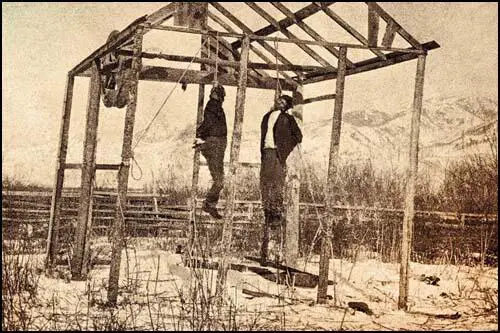
On this day in 1876 Edith Abbott, the sister of Grace Abbott, was born in Grand Island, Nebraska. Both sisters were influenced by their mother's passionate belief in equal rights for women. After graduating from college she worked as a school teacher in Grand Island while continuing her studies at the University of Nebraska.
Abbott moved to Chicago where she became a resident of Hull House and joined other women interested in social reform such as Jane Addams, Ellen Gates Starr, Mary Kenney, Grace Abbott, Mary McDowell, Alzina Stevens, Florence Kelley, Julia Lathrop, Alice Hamilton and Sophonisba Breckinridge.
In 1906 Abbott moved to London where she studied at University College and at the London School of Economics and Political Science (LSE) where she was influenced by the socialist ideas of Sidney Webb and Beatrice Webb.
After returning to the United States Abbott rejoined Sophonisba Breckinridge and over the next few years she become involved in the struggle for women's suffrage and achieving legislation that would protect immigrants, working women and children.
Abbott also worked with Sophonisba Breckinridge at the Chicago School of Civics and Philanthropy. In 1920 it was moved to the University of Chicago and Abbott helped establish it as the country's first university-based school of social work. Four years later she became dean of the school, a post she held for the next eighteen years.
In 1927 Abbott and Sophonisba Breckinridge established the Social Service Review and was its editor for many years.
Edith Abbott died at Grand Island, Nebraska, on 28th July, 1957.
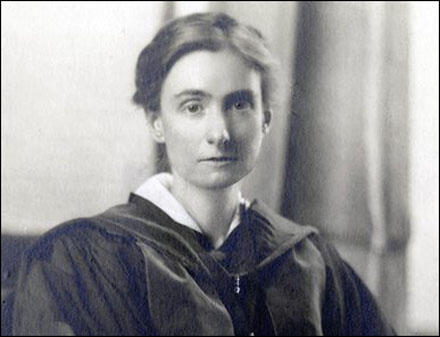
Freda Kirchwey was born at Lake Placid on 26th September, 1893. Her father, George Washington Kirchwey, was a professor at the Columbia University Law School. A pacifist, Kirchwey helped establish the New York Peace Society in 1906. He also supported women's suffrage and the development of trade unions.
Kirchwey went to Barnard College (1911-15) where she was taught by Charles Beard and Frank Boas. She became politically active and was a member of the Woman's Peace Party and sold the Woman Voter on the streets of New York.
After graduating in 1915 she became a reporter for the New York Morning Telegraph. Later that year she married Evans Clark, who worked as research director and legislative secretary for the Socialist members of the New York City Board of Aldermen. After working for Every Week Magazine (1917-18) and the New York Tribune (1918) she was recruited by Oswald Garrison Villard to work for The Nation. Others working for the journal at that time included Norman Thomas and Emily Balch.
In her articles for the journal Kirchwey argued passionately against American support for the forces fighting the Bolshevik government in Russia. She argued: "In a world that is sick with the diseases that breed from capitalist-imperialism, the virility of Russia may hold out the best hope for civilization." Kirchwey also gave her help to Margaret Sanger in her campaign for the dissemination of birth control information.
In November 1922 Kirchwey was promoted to Managing Editor. In this role she commissioned articles by Bertrand Russell, Elsie Clews Parsons, Raymond Gram Swing, Heywood Broun, Floyd Dell, Charlotte Perkins Gilman, Max Eastman, Henry Louis Mencken and Louis Fischer.
Kirchwey and her husband, Evans Clark, worked closely with Charles Garland, who inherited a considerable fortune in 1922. A socialist, Garland decided to set up an institution to dispense money to radical, liberal and trade union causes. Over the next few years the American Fund for Public Service provided financial help to the National Association for the Advancement of Coloured People in its campaign against lynching, subsidized the radical magazine New Masses and aided the defence of arrested trade union leaders.
Freda Kirchwey joined John Dos Passos, Alice Hamilton, Paul Kellog, Jane Addams, Heywood Broun, Upton Sinclair, Dorothy Parker, Ben Shahn, Edna St. Vincent Millay, Felix Frankfurter, John Howard Lawson, Floyd Dell, Bertrand Russell, George Bernard Shaw and H. G. Wells in the campaign to save the lives of Bartolomeo Vanzetti and Nicola Sacco.
A strong supporter of women's rights, in December 1926 she argued: "The women's revolution may mark the first half of this century more deeply than any other social change. The emotional conflicts that confront the modern woman, the profound choices that are forced upon her, the subtle interactions in home life, in the relations of the sexes, in factory and office are here discussed lightly yet with informed wisdom. I look forward to a future when women shall have found their sea legs and the impressive activities of the advancing women of today will seem like the earnest and awkward yet somehow promising movements of a land lubber on his first day out."
On his retirement in January 1933, Oswald Garrison Villard appointed Kirchwey as editor of the The Nation Villard remained the publisher, but Kirchwey now had complete control over the content of the journal. Although she had campaigned for Norman Thomas for president, she supported Franklin D. Roosevelt and his New Deal programme.
Raymond Gram Swing, who worked for The Nation during this period: "Of Miss Kirchwey, on whom the chief responsibility for conducting the magazine rested, I wish to say that she was one of the best and most likable journalists with whom I ever worked. I am tempted to call her the best woman journalist I ever encountered, but hesitate to rank her ahead of Dorothy Thompson, who was a better writer. But she was among the superior women journalists of her time."
Over the next few years she used her power to campaign against the fascist regimes in Europe. When Adolf Hitler gained power in 1933 she wrote that he represented "the abolition of personal liberty, for prejudice, for reaction, for race hatred and persecution, for terror and murder." Kirchwey argued that the United States should abandon its policy of isolationism and urged the government to impose economic boycotts on Germany and Italy.
Kirchwey also advocated a close alliance with the Soviet Union against Nazi Germany. In August 1935 she warned "that the basic conflict of the next ten years will not be between capitalism and revolution but between fascism and democracy - a struggle in which the forces of revolution must support." However, Kirchwey's views on the soviet government were dramatically shaken by the Great Purge when some of her political friends were executed by Joseph Stalin.
Kirchwey also wanted the United States administration to aid republicans in Spain against General Francisco Franco. In an article she wrote entitled Spain is the Key in February 1937 she made the forecast that "Franco's success would encourage the Nazis to go and do likewise in Czechoslovakia, Danzig, the Polish Corridor, or anywhere else. Defeated in Spain, Hitler would be sobered and checked. He would also be weakened by the expenditure on Franco of several hundred million dollars. If the fascists are beaten in Spain, they are weakened everywhere. The supreme test of an anti-fascist is not what he says but what he does for Spain."
On 2nd February, 1937, Franklin D. Roosevelt made a speech attacking the Supreme Court for its actions over New Deal legislation. He pointed out that seven of the nine judges (Charles Hughes, Willis Van Devanter, George Sutherland, Harlan Stone, Owen Roberts, Benjamin Cardozo and Pierce Butler) had been appointed by Republican presidents. Roosevelt had just won re-election by 10,000,000 votes and resented the fact that the justices could veto legislation that clearly had the support of the vast majority of the public.
Roosevelt suggested that the age was a major problem as six of the judges were over 70 (Charles Hughes, Willis Van Devanter, James McReynolds, Louis Brandeis, George Sutherland and Pierce Butler). Roosevelt announced that he was going to ask Congress to pass a bill enabling the president to expand the Supreme Court by adding one new judge, up to a maximum off six, for every current judge over the age of 70.
Kirchwey supported Roosevelt and in an editorial in The Nation she wrote "The soil of economic chaos out of which fascism grows has been amply supplied by the court's refusal to allow national action for economic control." This upset her publisher, Oswald Garrison Villard, who believed that the president was wrong to try and control the decisions of the Supreme Court. Kirchwey refused to change her stance on this issue and to maintain her independence she decided to try and buy the journal. In June 1937, Kirchwey and her husband purchased it for $20,000.
In 1938 Congress established the House of Un-American Activities Committee (HUAC) to investigate people suspected of unpatriotic behaviour. Kirchwey believed that the setting up of the HUAC was an attempt to restrict the freedom of the press and she accused Martin Dies, its chairman, as a "one-man Gestapo from Texas." She added that "Dies isn't after sedition; he is after you and me and the President."
After the outbreak of the Second World War Kirchwey campaigned for the United States to give more help to Jews trying to escape from persecution in Germany and the occupied territories. She wrote in January 1940 that "thousands of European Jews will die, unnecessarily, if we do not reach them with our life-giving dollars."
Kirchwey also called for universal military training in the United States. This upset Oswald Garrison Villard who severed all ties with the journal and stopped writing his weekly column, Personal and Private. Kirchwey's articles in favour of American support for the Allies against Nazi Germany lost the journal a large number of readers. She refused to compromise her views and in August 1941 wrote: "Before its total, uncompromising demands are laid upon them, the people of America must learn that this war is their war; that they cannot dodge it or buy their way out of it; that they must fight it because fighting is the only alternative to surrender.
By January 1942 over half a million Jews had been exterminated in Europe. This received little coverage in newspapers in the United States. This was not true of The Nation and the journal published a series of articles by Philip S. Bernstein detailing what was happening in the concentration camps being run by the Schutzstaffel (SS).
Kirchwey upset many liberals in March 1942 by arguing in favour of the fascist being suppressed. Her long time friend Norman Thomas wrote to her pointing out: " In ten years or less it won't be the people you want to suppress now who will be suppressed and stay suppressed by your theory; it will be yourselves along with many others, unless, indeed, you want to go farther than I think you do in support of a Roosevelt totalitarianism. Don't forget that neither Roosevelt nor anybody else is immortal. The principles once established are apt to outlive men."
When the American Civil Rights Union (ACLU) decided to defend the freedom of the fascist press she resigned her membership. John Haynes Holmes wrote to her explaining the decision of the ACLU: "I would fight to the death to maintain their (fascists) liberties, not for their own sake, but for the sake of a democracy which disappears when such liberties are withdrawn. Indeed, it is no longer a democracy, but to the extent at least that civil liberties are denied, has already itself become a fascist state."
The Nation continued to lose money and was in danger of closing. In 1943 Kirchwey made an appeal for $25,000 to keep it in business. The readers raised $36,000 and the money was used to establish Nation Associates. This new organization published the journal and arranged political conferences.
After the war Kirchwey was criticized for of her support of the Soviet Union. When long time staff member Louis Fischer resigned over this issue, Kirchwey wrote in the journal: "We believe Russian policy is primarily a security policy, not an imperialist one; it can become dangerous to the world, therefore, only if Russia decides that the other major powers are plotting against it."
Kirchwey was one of America's strongest critics of McCarthyism. In one article written in June 1950 she defined McCarthyism as "the means by which a handful of men, disguised as hunters of subversion, cynically subvert the instruments of justice and hold up to contempt the government itself in order to help their own political fortunes."
In September 1955 Freda Kirchwey retired as editor of The Nation and was replaced by Carey McWilliams. Over the next few years she was very active in the National Association for the Advancement of Coloured People in its campaign for civil rights.
Freda Kirchwey died at St. Petersburg, Florida on 3rd January, 1976.
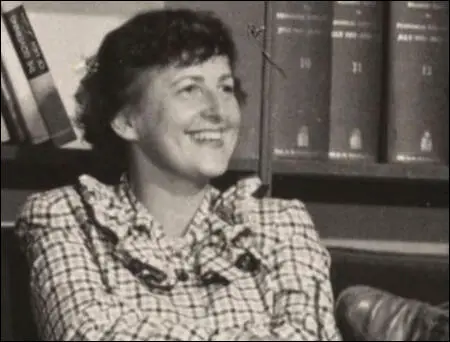
On this day in 1907 Anthony Blunt was born. In 1934 Arnold Deutsch recruited Blunt as a Soviet agent. He joined a Soviet spy ring that included Kim Philby, Donald Maclean, Guy Burgess, John Cairncross and Michael Straight. Christopher Andrew has argued in his book, The Defence of the Realm: The Authorized History of MI5 (2009): "KGB files credit Deutsch with the recruitment of twenty agents during his time in Britain. The most successful, however, were the Cambridge Five: Philby, Maclean, Burgess, Blunt and Cairncross.... All were committed ideological spies inspired by the myth-image of Stalin's Russia as a worker-peasant state with social justice for all rather than by the reality of a brutal dictatorship with the largest peacetime gulag in European history.... All were rebels against the strict sexual mores as well as the antiquated class system of inter war Britain. Burgess and Blunt were gay and Maclean bisexual at a time when homosexual relations, even between consenting adults, were illegal." In 1964 Blunt admitted being a Soviet agent and named twelve other associates as spies. They were all given immunity from prosecution. It seems you can be a Soviet spy as long as you are a member of the establishment.
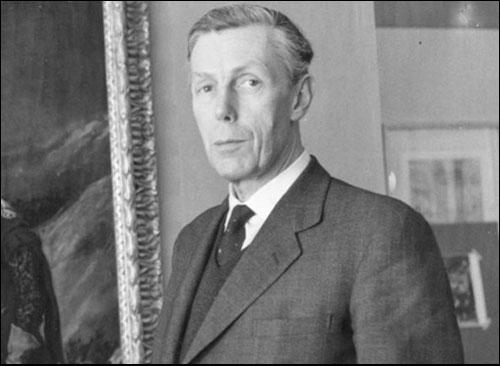
On this day in 1908 a gang led by Jozef Pilsudski, a member of the People's Will organization, stole 200,000 rubles from a mail train in Bezdany. Pilsudski used this money to build up a new revolutionary army. Roman Dmowski, the main leader of the Polish nationalist movement, believed the best way to achieve a unified and independent Poland, was to support the Triple Entente against the Triple Alliance. Pilsudski disagreed and saw Russia as the main enemy. Pilsudski began building a private army that he hoped would enable Poland to fight for its independence from Russia. In 1914 Pilsudski and his 10,000 men fought with the Austrians against the Russian Army but after the Russian Revolution his loyalty was questioned and he was arrested and imprisoned in July 1917. On his release in 1918 Pilsudski became provisional head of state and leader of all Polish troops. Pilsudski represented Poland at the Versailles Treaty and his army successfully defended Poland against the Red Army (1919-20). During the Russian Civil War Pilsudki's army made considerable gains and the Soviet-Polish Treaty of Riga (1921) left Poland in control of substantial areas of Lithuania, Belorussia and the Ukraine. Pilsudski remained in charge of the army until 1923. After three years retirement, Pilsudski staged a military coup in May 1926. For the next nine years Pilsudski was the virtual dictator of Poland.
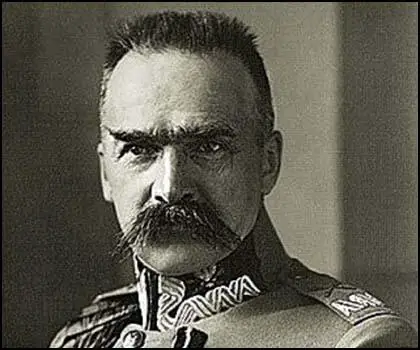
On this day in 1923 Gustav Stresemann, Chancellor of Germany, brings an end to the passive resistance in the Ruhr and resumed payment of reparations. He also tackled the problem of inflation by establishing the Rentenbank. Stresemann was severely criticized by members of the Social Democratic Party and Communist Party over his unwillingness to deal firmly with Adolf Hitler and other Nazi Party leaders after the failure of the Beer Hall Putsch. Later that month the socialists withdrew from Stresemann's government and he was forced to resign as chancellor. In the new government led by Wilhelm Marx, Stresemann was appointed as foreign minister. He accepted the Dawes Plan (1924) as it resulted in the French Army withdrawing from the Ruhr. Under Hans Luther Stresemann's skilled statesmanship led to the Locarno Treaty (December, 1925), the German-Soviet Treaty (April, 1926) and Germany joining the League of Nations in 1926. Later that year he was awarded the Nobel Peace Prize. Gustav Stresemann negotiated the Young Plan but soon after that he suffered two strokes and on 3rd October, 1929 he died of a heart attack.
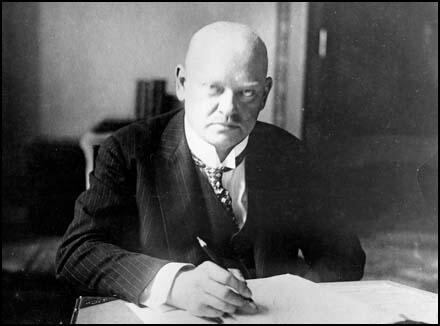
On this day in 1938 Adolf Hitler issues ultimatum to Czech government, demanding Sudentenland. Around 25% of the population was German. After the First World War the Sudetenland (some 11,000 square miles) became part of Czechoslovakia. Benito Mussolini suggested to Hitler that one way of solving this issue was to hold a four-power conference of Germany, Britain, France and Italy. This would exclude both Czechoslovakia and the Soviet Union, and therefore increasing the possibility of reaching an agreement and undermine the solidarity that was developing against Germany. The meeting took place in Munich on 29th September, 1938. Desperate to avoid war, and anxious to avoid an alliance with Joseph Stalin and the Soviet Union, Neville Chamberlain and Edouard Daladier agreed that Germany could have the Sudetenland. In return, Hitler promised not to make any further territorial demands in Europe.
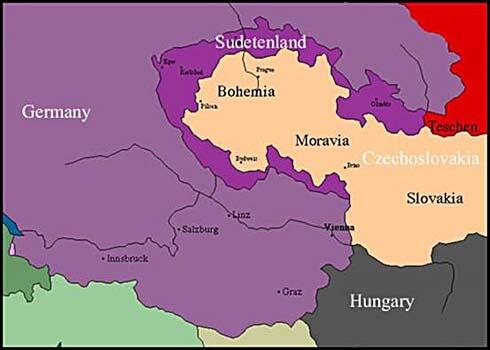
On this day in 1939 the Junkers Ju 88 made its first flight. It was the main bombers used by the Luftwaffe during the Battle of Britain and the Blitz. Like other major aircraft used during the Second World War it was constantly being modified. Production continued throughout the war and a total of 16,000 were built by 1945.

On this day in 1960 the first TV debate between John F. Kennedy and Richard Nixon took place. Howard K. Smith moderated the debate. Nixon refused make-up for the first debate, and as a result his facial stubble showed prominently on the black-and-white TV screens at the time. During the debate, Nixon started sweating under the hot studio lights giving way to visible beads of perspiration. He had chosen a light gray suit which faded into the backdrop of the set and seemed to match his ashen skin tone. One political commentator commented: "My God, they've embalmed him before he even died."
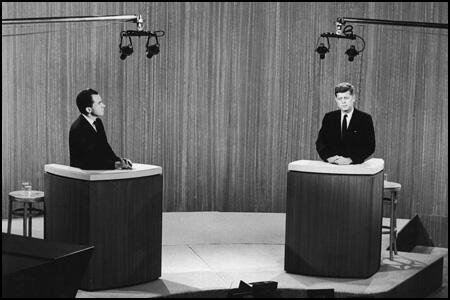
On this day in 1960 Cuban leader Fidel Castro delivers a 4 hour and 29 minute long speech at the United Nations. President Dwight Eisenhower responded by approving a Central Intelligence Agency (CIA) plan to overthrow Castro. The plan involved a budget of $13 million to train "a paramilitary force outside Cuba for guerrilla action." The strategy was organised by Richard Bissell and Richard Helms. An estimated 400 CIA officers were employed full-time to carry out what became known as Operation Mongoose. Edward Lansdale became project leader whereas William Harvey became head of what became known as Task Force W. The JM WAVE station served as operational headquarters for Operation Mongoose. Sidney Gottlieb of the CIA Technical Services Division was asked to come up with proposals that would undermine Castro's popularity with the Cuban people. Plans included a scheme to spray a television studio in which he was about to appear with an hallucinogenic drug and contaminating his shoes with thallium which they believed would cause the hair in his beard to fall out. Allen W. Dulles, the director of the CIA initiated talks with two leading figures of the Mafia, Johnny Roselli and Sam Giancana. Later, other crime bosses such as Carlos Marcello, Santos Trafficante and Meyer Lansky became involved in this plot against Castro.
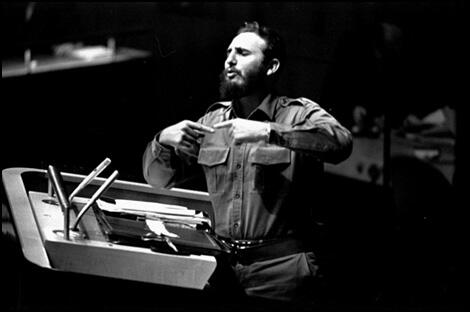
On this day in 1963 Lee Harvey Oswald travels on Continental Trailways bus to Mexico City where he visited the Cuban Embassy where he attempted to get permission to travel to Cuba. His application was turned down and after trying to get a visa for the Soviet Union he arrived in Dallas in October, 1963. Marina Oswald and their daughter June, were living with a woman called Ruth Paine. Oswald rented a room in Dallas and with the help of Ruth Paine, he found a job at the Texas School Book Depository.
